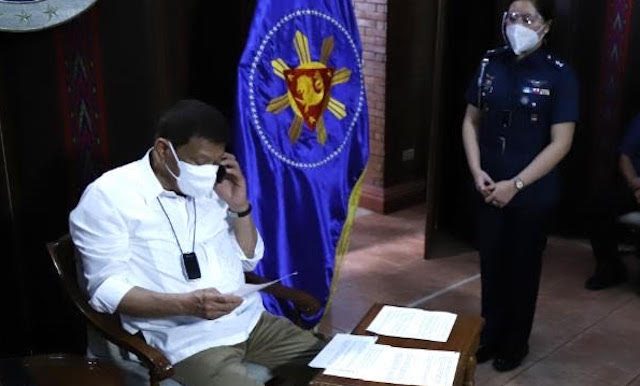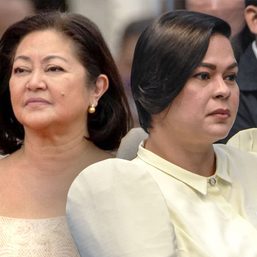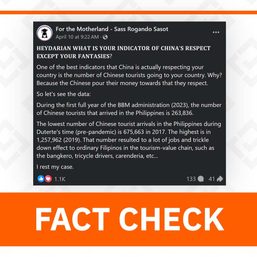SUMMARY
This is AI generated summarization, which may have errors. For context, always refer to the full article.

Philippine President Rodrigo Duterte, in a phone conversation with Australian Prime Minister Scott Morrison, thanked Australia for “affirming” Manila’s legal victory over Beijing in the dispute over the South China Sea.
The phone call took place on Monday, November 30, according to details released by Malacañang.
The Philippine leader, says the Palace, “thanked the Government of Australia for its formal manifestation before the United Nations affirming the Arbitral Award on the South China Sea issue.”
Duterte is quoted as telling Morrison, “We consider Australia a close partner in upholding international law, including UNCLOS, and in promoting maritime security.”
What manifestation?
Last July 23, Australia sent a letter to the United Nations where it soundly rejected several claims put forth by China to assert its rights over virtually the entire South China Sea, including the West Philippine Sea, which lies in the Philippines’ Exclusive Economic Zone.
Part of the letter reads: “Australia rejects China’s claim to ‘historic rights’ or ‘maritime rights and interests’ as established in the Tong course of ‘historical practice’ in the South China Sea. The Tribunal in the 2016 South China Sea Arbitral Award found these claims to be inconsistent with UNCLOS and, to the extent of that inconsistency, invalid.”
Australia was only one of several countries, including the United States, France, Germany, and Indonesia, to assert the Hague ruling in recent months, after China filed circular notes in relation to Malaysia’s application to define the limits of its extended continent shelf.
Last September 23, Duterte himself brought up the Hague ruling for the first time during a United Nations General Assembly.
China, meanwhile, has tried to ignore the Hague ruling, ever since it was issued in 2016. Australia, in its submission to the UN, said China must comply with the Hague ruling.
“The Australian Government also disputes China’s claim that it is not bound by the Arbitral Award… Pursuant to Article 296 and Article 11 of Annex VII of UNCLOS the Tribunal’s decision is final and binding on both parties to the dispute,” reads the July letter.
PH-Australia agreements
Malacañang described the phone conversation of the two leaders as “open and productive.”
Duterte mentioned his hope for the adoption of a “Plan of Action” to improve implementation of the Joint Declaration of the Philippines-Australia Comprehensive Partnership.
This joint declaration was signed in 2015, or during the administration of Benigno Aquino III.
It aims to deepen and strengthen Philippines and Australia bilateral relations in all aspects – including in promoting investments between the two countries and in defense cooperation, given that Australia is a military treaty ally of the Philippines.
Australia has been active in aiding the Philippines’ modernization of its military, in fighting violent extremism in Mindanao, and helping in the creation of the Bangsamoro Autonomous Region in Muslim Mindanao.
ASEAN pandemic fund, trade relations
Duterte and Morrison also spoke of other cross-border issues, like the pandemic, terrorism, and economic recovery.
The Philippine President welcomed Australia’s pledge to provide $727,000 for the Association of Southeast Asian Nations (ASEAN) COVID-19 Response Fund.
He also expressed appreciation for Australia’s willingness to help ASEAN on maritime security, fighting terrorism, cybersecurity, and curbing marine plastic pollution.
As for the economy, Duterte told Morrison he expects the recently-signed Regional Comprehensive Economic Partnership (RCEP) and ASEAN-Australia-New Zealand Free Trade Area (AANZFTA) to help uplift the economies of all countries involved. – Rappler.com
Add a comment
How does this make you feel?



![[OPINION] ‘Some people need killing’](https://www.rappler.com/tachyon/2024/04/tl-some-people-need-killing-04172024.jpg?resize=257%2C257&crop_strategy=attention)

There are no comments yet. Add your comment to start the conversation.